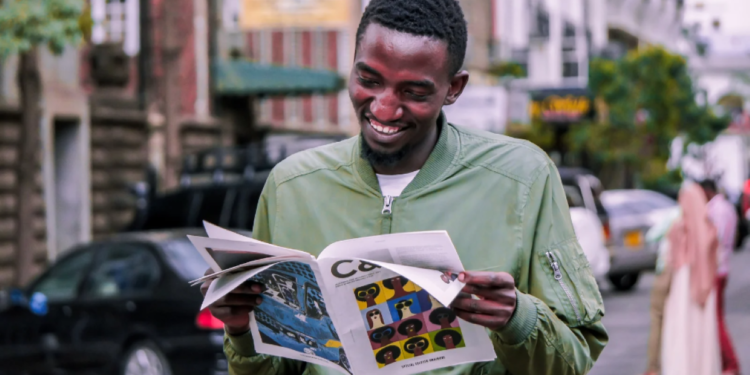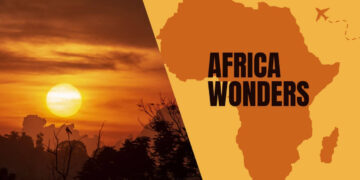The Ghana Broadcasting Corporation (GBC), through its news anchors, has pioneered the promotion of the country’s local fabrics like the ntoma, kente, batakari amongst others. Most African countries have fabrics with unique patterns and colors that express their peculiar cultures and traditions, for example the leso and kitenge from the coastal side of East Africa – Kenya and Tanzania and the ankara from Nigeria.
Indigenous African languages and cultures can also be expressed and sustained with other popular material and non-material systems. Just as fabrics travel wide and are public material resources, journalism is endowed as a means for engaging the masses across a wide geographic area. Thus, this article delves into the role of the media in Africa in safeguarding indigenous African languages and cultures.
Unwritten mandate to promote cultural values and African languages
Journalists by their wide reach and public accessibility are pivotal to the promotion and sustainability of indigenous cultures and African languages. In this regard, journalists post huge influence on citizens’ consciousness of accurate indigenous cultural values and languages. Yet, it is not uncommon to find poorly reported news about culture, which is not only demeaning to the affected community but also recreates culture and languages in distorted versions that destroys a people’s identity, self-consciousness, and their sense of belonging and existence.
Such a destructively shameful media job also actually paints a negative image on the journalist and media house involved, eroding the relevance of journalists for cultural and language sustainability. The result of ill-prepared media work misinforms society with regards to its indigenous languages and cultures. However, the media is powerfully endowed and centrally placed and can be constructed as having the mandate to tell the true stories of its people to safeguard its indigenous African languages and cultures from adulteration and loss.
It is commendable how many media houses have embraced vernacular stations, which have not only created job opportunities and an audience for indigenous languages, but has encouraged many people to re-embrace their languages and cultures, as well as take pride in them. The reawakening of interest and pride in one’s indigenous cultures and languages when the media does its job well has been extended into social media spaces where citizens are increasingly able to interact in their mother tongues as well as generate content.
Tendai Chari, in the article, ‘Breaking protocol: Indigenous Language Usage Practices in Online Readers’ Comments in Zimbabwe’, alludes that usage of indigenous languages in online deliberations enables citizens to interrogate journalistic output, challenge journalistic and political authority thus ensuring that indigenous languages are incorporated in the global media culture, eventually countering western hegemonic epistemology.
This is a great development from the times when readers had to write letters to the editor in a decided format, language and length. Participation of citizens in media’s productions and publications only means that the media has a bigger role in setting the agenda to engage with the sustainability of indigenous languages and cultural values.
Investing in the right grammar and lexicons in publications
Most media houses, while having interest in promoting the indigenous languages through their platform, do not take into consideration the negative influence of bad usage of grammar and lexicons in their publications. This also affects how their readers communicate in the same language when interacting with these productions and publications.
Getting the right grammar might involve the services of linguists with professional knowledge to train or work alongside journalists and writers to ensure that they get it right. These professionals usually are constantly in the practice of promoting indigenous cultures and African languages, thus possessing a wealth of experiences and skills to support journalists. For instance, Akan kaseɛbɔ, managed by Bolingo Consult, generates a good depth of experience and skills in grammar and lexicons for indigenous languages that is relevant for journalism. Akan kaseɛbɔ is an Akan news platform that has all its news written in two Akan languages, that is, Asante Twi and Mfantse.
At the 2023 Mother Language Day celebrations, Nana Kwesi Gyan-Apantang , former president of the Ghana Association of Writers, acknowledged the efforts and experience of Bolingo Consult in raising the digital platform for African languages. Bolingo Consult had joined the Bureau of Ghana Languages, the Young Writers Foundation and the Ghana Education Service in an eventful ceremony at the Mando Secondary Technical School themed: “Multilingual Education – a necessity to transform education” where speeches emphasized the urgency of all Africans to promote the deeper learning of indigenous languages and cultures as a way to maintain identities and belonging.
Similarly, Katrina Esau Ouma, a nonagenarian from South Africa has proven that through teaching of the indigenous N|uu language in schools, the identity and cultures of the San people are preserved alongside writing the language correctly. Perhaps more journalistic investigations about language development could unveil more people like Katrina, who not only received a honorary doctorate from the University of Cape Town to appreciate her efforts in reviving the N|uu language but also collaborated with the university to unveil the N|uu language dictionary which can now be used by South African journalists to tell authentic stories in the indigenous San languages.
African languages: A little research goes a long way
One of the ways that journalists can safeguard indigenous African languages and cultures is through research. This could mean moving away from home in order to obtain quality reports on African languages and cultures. Research complements information from libraries and archives. However, research is useful also to correct misinformation in existing materials, some of which are written by people who are foreign to the cultures and languages they write on.
While the advent of digital media, which includes social media, has created a platform for citizen journalism and enabled higher visibility of indigenous cultures and languages, there is still a need for professional journalists to do credible research to counter bad materials in public domains. Research produces new knowledge and assesses existing materials, on the terms of a people themselves, not by foreign media and writers.
Digital media has become vital in empowering journalists and writers to reach masses, this further enhancing their relevance in promoting indigenous cultures and languages. Gindigwe Gift et al, in an article titled, ‘The Tonga People of Northern Zimbabwe: An Encounter with Digital Media’, examine the the impact of digital media in the increased participation and visibility of the marginalized Tonga people of Zimbabwe and how this has redefined and replaced traditional journalism in Zimbabwe, through the analysis of the online publication mulonga.net.
According to Gindigwe et al, this is the only public platform that the Tonga people who hail from Northern Zimbabwe can express themselves, yet the platform itself was launched in Vienna, Australia. Perhaps working with traditional journalists would create a chance for the Tonga people, who are equally found in Zambia and Botswana, to fully incorporate the Tonga language in further development of this platform.
However, caution is of essence here. The danger of citizen journalism is a lack of boundaries as well as professionalism. This is where journalists could lead with examples in practicing professionalism, accurate grammar, and showing keen interest in safeguarding the indigenous languages and cultures.
Africanizing the news media in Africa
Scholars argue that the news media in Africa is ill-fit to meet the demands of language and cultural needs of society because the role of the news media is dictated by Western epistemologies. This is according to Yiva Rodyn-Gumede whose article, ‘An Assessment of the Public Interest and Ideas of the Public in South Africa and the Adoption of Ubuntu Journalism,’ investigated whether the adoption of Ubuntu Journalism by South African journalists would broaden the news media audience as well as create an avenue for more interests and concerns.
Ubuntu is an African philosophy that universally means “humanity”, “I am because we are” or “humanity towards others.” Different Bantu communities in Africa have different terms for it, but its universal meaning that cuts across all societies is the same. It is what defines the socio-cultural communal African life that encompasses the values, norms and ethics that define social behaviors in African society. Journalists are a group of professionals well positioned to nurture and sustain this humanity value, even to the global world.. Perhaps it is high time that journalists received training in African studies and indigenous African languages to understand first hand the weight of their importance in acting as gatekeepers for indigenous African languages and cultures.
For the news media in Africa to be Africanised it means there needs to be an availability of resources that will enable journalists to acquire indigenous African knowledge on African cultures and languages. Wunpini Fatmata Mohammed discusses this in the article, ‘Decolonising African Media Studies’ in which she highlights the marginalization of the African media studies in the Global North.
She equally discusses how indigenous African systems are important in building theories that suit African media research and the importance of transdisciplinarity for the field to grow. This is certainly an option that can steer the rethinking of the representation of African cultures in the global space and the unapologetic inclusion of indigenous African languages in publications and productions by journalists, academics, technocrats, and the public in general. Africanising media in Africa could redefine journalistic training in learning institutions across Africa to be geared towards the preservation and promotion of African indigenous languages and cultures.
The need for journalism and media to adopt indigenous languages in their news broadcast cannot be overemphasized. As calls and efforts towards true decolonisation, repatriation, and restitution grow in Africa and the Diaspora, journalists in Africa are presented with the opportunity to make a mark by contributing to sustaining indigenous cultures and African languages. However, as discussed above, there is still more that has to be done to ensure that the media is well resourced and Africanised to take up this role.










